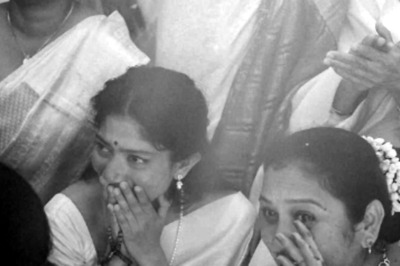
views
New Delhi: Economic policy decisions and reformist legislations could be the main casualty of the sudden decision by the Dravida Munnetra Kazhagam to withdraw support to the United Progressive Alliance (UPA) government.
Corporate houses were not willing to give their immediate reactions on record, but some chiefs said privately they foresaw a crisis unless immediately resolved and that the same could translate into slower decision-making process, especially on reforms.
"We did have an indication something was amiss, going by the finance minister's (Pranab Mukherjee) remarks today. But little did we realise the events could take such a turn," said an industrialist, also active in a leading industry chamber.
In a rather candid admission, the finance minister had told reporters that there were problems with the Tamil Nadu-based ally over seat-sharing for the upcoming assembly elections, but that the same would be resolved.
"In our political relationship, we have sometimes some problems. We have the capacity to create problems and at the same time solve them. It will be solved," Mukherjee had said on Saturday.
Another head of an industry chamber pointed out that they were particularly worried over the fate of seven long-pending bills the government had promised to introduce soon for financial sector reforms covering insurance, pension and banking.
"There was also this promise of looking afresh at the whole foreign direct investment policy. This included the demand that the multi-brand retailing be opened up. All this could now be pushed to cold storage once again," he said.
Some others felt there could be a compromise between the Congress and DMK eventually and that could allay all apprehensions which the industry has, as of now. "Just as Sensex is extremely unpredictable, so is politics. Call me tomorrow," said an industrialist.
But they all felt it will prove to be a jolt to market and investor sentiments.
In a development on Saturday evening, DMK decided to end its seven-year alliance with the ruling UPA government under Prime Minister Manmohan Singh over differences with the Congress party on seat-sharing in assembly elections.
As a result, the ruling coalition will only have 256 members of parliament in the Lok Sabha, the lower house of parliament, which is less than the half-way mark of 272 lawmakers required for simple majority.




















Comments
0 comment